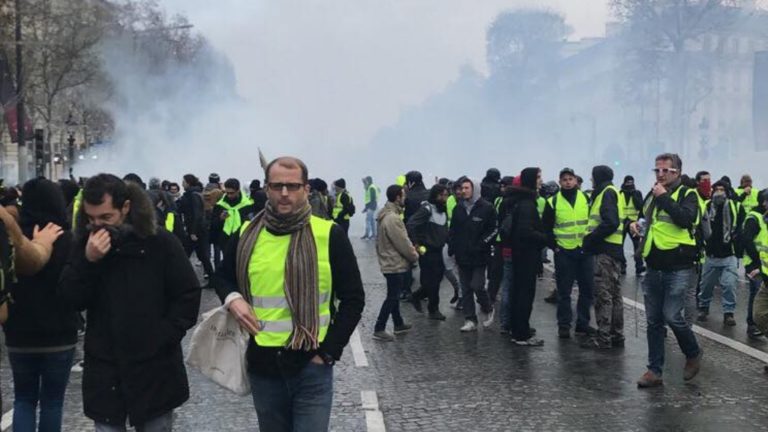More than 130 outraged Parisians are estimated to have taken part in last weekend's demonstrations against the French government and its policies. A policy that in the long run will reduce global warming, but which in the short run is perceived as impossible and unfair to many in France.
Since the beginning of November, protests and demonstrations have paralyzed France. Media around the world have reported on a scrawled, ruined triumphal arch and burned cars on the Champs-Élysées. What is really behind the protesters Yellow Vests Anger is a widespread dissatisfaction with political reforms. Above all, an increase in the price of petrol.
François Verger, student and one of the spokespersons for Yellow Vests, is strongly opposed to the new, increased petrol tax:
- Those who live in the countryside have to pay the price, not the people who live in the big cities. As in Paris, for example, there are good means of transport. It is very unfair, says Verger.
Higher petrol prices were intended to lead France on a more environmentally friendly path. In the long term, French President Emmanuel Macron expects to get rid of pollution and reduce the use of fossil fuels. However, he is forced to do this in another way. On December 4, Macron announced that the price of petrol and diesel would not fall, as a result of the protests. The message pleases François Verger, who believes that everything that reduces inequality is good. Lack of social equality is the main reason why a country collapses, he believes.
But despite the fact that the plans for a higher petrol price will not materialize, Verger is not completely satisfied:
- According to surveys by Oxfam, inequality has increased under Macron's leadership. That is why we need to enable a referendum, he says.
What many pass by when talking about Yellow Vests and the growing dissatisfaction with Emmanuel Macron's policies is the motive behind his reforms. The Paris Agreement, the global climate agreement that entered into force in 2016, has the ultimate goal of keeping global warming below two degrees. The international agreement binds 194 countries to work to reduce emissions that lead to threats to the climate. According to François Verger, this does not have to be a problem.
- Of course, you can pursue a more environmentally friendly policy without at the same time increasing the gaps in society. People just want it to be fair, that's the only thing, says Verger.
The conflict between an environmentally friendly policy and people's economic and social prosperity has probably never been clearer in France. One blames a political elite for making decisions that disadvantage ordinary people, and many feel that they are being treated unfairly. These feelings are closer at hand than the thoughts of an approaching global warming. A simple solution to the problem may not be possible to find, but a backlash for environmental policy is also a sign of future development.

